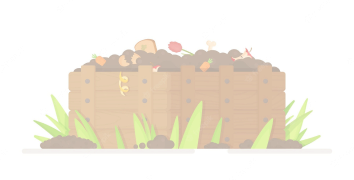
Can I put peanut shells in my compost bin?
YES 🎉
You can put peanut shells into your composting bin!
Key info
Brown material📂
6 months - 2 years⏳
50:1⚖️
Get the right balance of brown and green composting materials in your bin with our expert guide.
The Ultimate Guide to Composting with Peanut Shells
Composting Peanut Shells: A Sustainable Choice
Why Choose Peanut Shells for Your Compost Bin?
Peanut shells are often overlooked as a compostable material. Yet, they are an incredible addition to any compost pile, serving as an excellent source of brown material. Being biodegradable, peanut shells contribute to a more sustainable and efficient composting process. When added to your compost bin, not only do they help in creating richer soil for your garden, but they also play a significant role in reducing landfill waste. The key to successful composting with peanut shells lies in patience and understanding their decomposition process.
Understanding the Decomposition Process
Peanut shells fall into the category of brown composting materials, which are essential for adding carbon to your compost pile. They have a carbon-to-nitrogen ratio (C:N) of 35:1, which is ideal for balancing with green materials that provide nitrogen. However, it's crucial to note that peanut shells have a longer decomposition time, typically ranging from six months to two years. This variance in decomposition time is something gardeners should prepare for when incorporating peanut shells into their compost bins.
Tips for Effective Composting with Peanut Shells
Crushing Peanut Shells for Accelerated Decomposition
One of the most effective ways to speed up the decomposition of peanut shells is by crushing them into smaller pieces. This increased surface area allows for quicker microbial action, thus integrating the shells more rapidly into the compost. While this step is not mandatory, it is highly recommended for those looking to optimize their composting timeline.
Achieving the Perfect Green-Brown Ratio
To create a balanced and effective compost pile, it's essential to maintain the correct ratio of green to brown materials. Green materials provide nitrogen, while brown materials like peanut shells add carbon. A balanced compost pile should have a carbon-to-nitrogen ratio of about 30:1. Incorporating peanut shells into your compost bin requires a mindful approach to ensure that there's enough green material to complement the carbon-rich shells. This balance is crucial for a healthy, thriving compost that benefits your garden soil.
FAQs
Can I put raw and roasted peanut shells in my compost bin?
Yes, both raw and roasted peanut shells can be added to your compost pile. However, it's important to crush them for faster decomposition.
How long do peanut shells take to decompose in a compost pile?
Generally, peanut shells take about 6 months to 2 years to fully decompose in a compost pile. This timeline can be shortened with proper management and by crushing the shells before adding them.
What is the carbon-to-nitrogen ratio (C:N) of peanut shells, and why is it important?
Peanut shells have a C:N ratio of 35:1, making them an excellent source of carbon in your compost pile. Balancing this carbon with nitrogen-rich materials is key to effective composting, as it ensures a healthy decomposition process.
Search again?